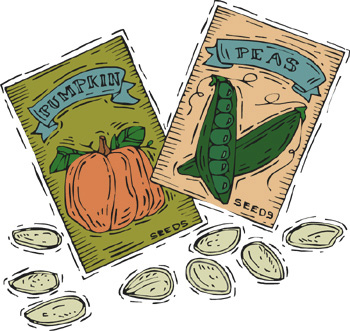Gardens
How Long Do Seeds Last?
Before I buy new seeds, I’d like to know if I can use the ones I have left over from last year. How long do seeds last? Is there a general rule I can follow to tell if they are good? Seeds have widely differing useful lives. Onion, aster, and delphinium, for example, must be […]

 Before I buy new seeds, I’d like to know if I can use the ones I have left over from last year. How long do seeds last? Is there a general rule I can follow to tell if they are good?
Seeds have widely differing useful lives. Onion, aster, and delphinium, for example, must be very fresh to germinate well. Others, including squash, tomato, and columbine, will stay viable for years under proper conditions (cold, dry, and dark, primarily). Since so many variables are involved, the easiest way to be sure is to run a germination test.
Check the packet to see whether the seeds have any special requirements, then scatter at least a dozen on a folded piece of dampened paper towel. Fold over again to exclude light or leave flat if light is needed. Place in a plastic bag and close loosely to retain moisture while admitting a small amount of air (if the package is airtight, the seeds will rot). Use a marking pen to label the bag with date and variety name of seeds. Start checking after three days. Most ordinary garden seeds will germinate in three to 12 days, though some take a lot longer. Plan to order new seeds if fewer than half the stored ones sprout.
Before I buy new seeds, I’d like to know if I can use the ones I have left over from last year. How long do seeds last? Is there a general rule I can follow to tell if they are good?
Seeds have widely differing useful lives. Onion, aster, and delphinium, for example, must be very fresh to germinate well. Others, including squash, tomato, and columbine, will stay viable for years under proper conditions (cold, dry, and dark, primarily). Since so many variables are involved, the easiest way to be sure is to run a germination test.
Check the packet to see whether the seeds have any special requirements, then scatter at least a dozen on a folded piece of dampened paper towel. Fold over again to exclude light or leave flat if light is needed. Place in a plastic bag and close loosely to retain moisture while admitting a small amount of air (if the package is airtight, the seeds will rot). Use a marking pen to label the bag with date and variety name of seeds. Start checking after three days. Most ordinary garden seeds will germinate in three to 12 days, though some take a lot longer. Plan to order new seeds if fewer than half the stored ones sprout.


